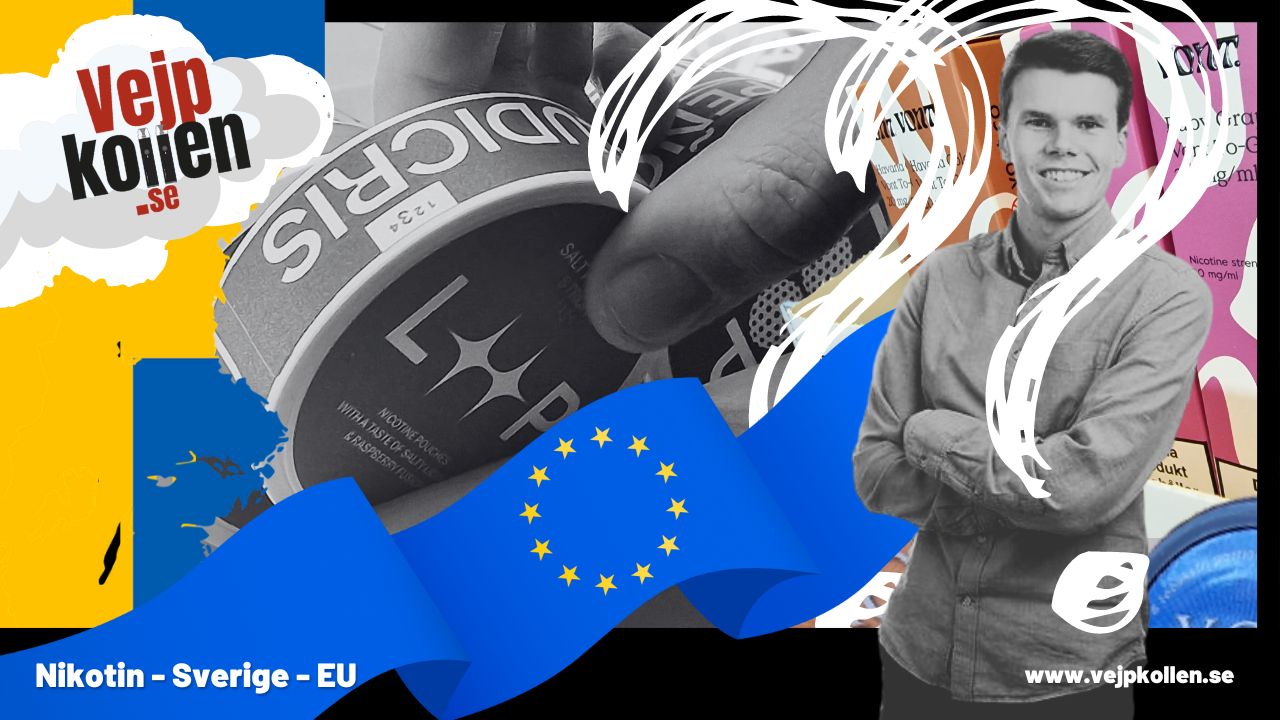Why is the Ministry of Social Affairs covering up what it has said and thought about nicotine pouches, e-cigarettes and snus to the European Commission? This is what Samuel Lundell and the Snusarnas Riskförbund are asking, and they have now reported the Ministry to the Parliamentary Ombudsman.
"It is a right for us snus users to find out what the Ministry of Social Affairs says about the issue. Does the ministry support the government's new line on harm minimisation or are they continuing the witch hunt on snus?" asks Samuel Lundell.
The Ministry of Social Affairs was asked to comment on future EU regulation of new nicotine products. They did so by responding to a questionnaire from a consultancy firm working on behalf of the European Commission. The reports Dagens Nyheter.
But the responses from the Ministry of Social Affairs were never registered. And when the Ministry was asked to provide a copy of the questionnaire, it was told that it had not even been registered. According to information provided to Today's news the Ministry has also not participated in a follow-up meeting where Mr Friman wanted more in-depth answers on Swedish tobacco policy.
The Ministry
Now Samuel Lundell, chairman of the consumer organisation National ban on snus, reported the Ministry of Social Affairs to the Parliamentary Ombudsman.
"It is certainly in the public interest to know what information the Ministry of Social Affairs has shared on this issue, especially as it represents the government. Moreover, it is completely unreasonable that they have not even recorded their response." says Samuel Lundell to Vejpkollen.
Want to regulate by risk
Samuel Lundell also points out that the Swedish Parliament has taken a clear position that Swedish nicotine policy should include a harm minimisation perspective. This means that legislation on nicotine pouches, snus and e-cigarettes is intended to reflect the relative risks between different forms of nicotine use.
"The government has been clear that the products are seen as one of several tools to reduce the harm of nicotine consumption in Sweden." says Samuel Lundell.
No exception for Sweden
According to several unconfirmed reports, the European Commission, supported by the report of the same consultancy firm that contacted the Ministry of Social Affairs, will propose comprehensive measures to restrict access to nicotine pouches and e-cigarettes In the worst case scenario, this could mean a ban on oral nicotine products, following the same model as for Swedish snus. The difference is that the ban will also apply in Sweden, despite the current exemption for snus.
"Snus plays a crucial role in keeping the smoking rate in Sweden so low. Nicotine pouches and e-cigarettes have become popular alternatives to cigarettes, which means that even fewer people start smoking. This is particularly true among younger people and women. Both the current government and a majority in the Swedish parliament have acted on this by, for example, reducing the tax on snus and simultaneously raising it on cigarettes, and choosing to retain the possibility of flavourings for e-cigarettes", says Samuel Lundell.
Concerns very many Swedes
He is now concerned that the Ministry of Social Affairs has not expressed the opinion of the elected representatives on the issue.
"It's impossible to know, because for some reason they didn't want to be open about it. That's why I filed a complaint. This is an issue that concerns a large part of the Swedish population. We have the right to know whether the Ministry is really following the line decided by the Riksdag, or whether there is a different opinion among the officials. It's quite simple really and is basically a question of democracy", Samuel Lundell tells Vejpkollen.
Facts: The debate on smokeless nicotine.
- E-cigarettes have been on the market for 20 years. Very low nicotine pouches have been regulated as medicines since the early 2000s. The modern nicotine pouch, with higher nicotine content was launched when the EU started regulating e-liquids with nicotine as regular consumer products (with a maximum limit of 20 mg of nicotine per millilitre).
- E-cigarettes, snus and nicotine pouches are a hot topic in science. Nonetheless, there is currently a consensus in international research, including through summaries from British Royal College of Physicians, that smokeless nicotine products cause a fraction of the damage proven to be caused by smoking. However, it is argued that, with the exception of snus use in Sweden, there are no long-term epidemiological studies to support this, for obvious reasons.
- Swedish politicians have Divided opinions on snus (and subsequently the role of nicotine pouches) in relation to Sweden's low smoking rate. At present, a majority in the Riksdag (including the parties forming a government in 2022) are in favour of a principle of harm minimisation. The government wants snus and other smokeless nicotine products, such as e-cigarettes, to be regulated differently from smoking tobacco.
- Recently, the government announced that tax on snus to be reducedand that the reduction will be financed by increasing taxes on cigarettes. Nicotine pouches are regulated at the same way as e-cigarettes, with taxation, age limits and marketing restrictions.
- Swedish public health authority for its part, aligns itself with the opposition and believes that snus and vejp products should be regulated in the same way as cigarettes. The Public Health Agency of Sweden has, among other things the issue of banning the flavour of e-cigarettes, a proposal put forward by the previous Social Democratic government, but which was voted down in parliament. The Public Health Agency is also funding several lobbying organisations which, like the Agency, wants to see tougher legislation for new nicotine products.




